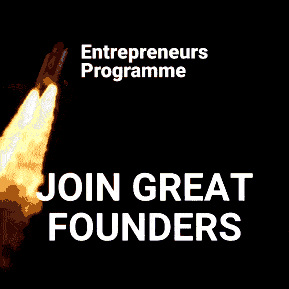Update January 31, 2019: Added a fundraising resource section below. Enjoy!
How To Find Investment For Your Startup
Most early-stage business founders have very high expectations and confidence when it comes to seeking investment. What they often do not understand is how to look from an investor’s point of view. There are a lot of factors that can kill startups very early. That is why an average of only 20% is able to actually launch.
Besides a great plan and enthusiasm, what a startup needs after a while is capital. Often for the reasons to scale and grow their business. Without financing, startups cannot grow and never really take off. This is why business owners seek for financial back up from different sources which can be a slow and tough process.
Normally when entrepreneurs want to start a business they have some initial capital raised by either themselves or family and friends. Using this type of financing is called bootstrapping. Normally, this is relatively easy to obtain because also family and friends are more flexible than external sources.
It is of course very much recommended to start off like this. In later stages, it is good to fundraise. Not only for financing but also to gain strategical partners.
About how to find investment in later stages, you can read more in the following paragraphs.

Crowdfunding
Crowdfunding is an online platform on which you can present your business or project to a large pool of individuals for the purpose of raising money.
There are three types of crowdfunding which are: Donation-Based, Reward-Based and Equity-Based.
For Donation-Based crowdfunding, there is no financial return to the investors. Most of the organizations that can make use of this serve the purpose for disaster relief, charities, nonprofits, and medical bills.
People who invest in Reward-Based crowdfunding contribute with the fund in exchange for rewards. This normally is in the form of the product that the company offers. This method is quite popular because business owners do not have to give away anything in terms of money or equity and it still attracts investors. Think about an app designer who offers an early release to crowdfunding investors.
Investors of Equity-Based crowdfunding get equity in exchange for their input of capital and become shareholders with that. They also receive dividends when given out by the company.
Crowdfunding is not always preferred because the crowdfunding platforms take a percentage of the raised amount.
However, crowdfunding also brings some benefits. First of all the reach, through crowdfunding means that you can reach many different investors from anywhere in the world who can also share your campaign. Crowdfunding platforms are there to bring you more investors that you can't reach normally.
Secondly, by sharing your campaign on social media, newsletters, and other online marketing techniques, it really supports your HR & marketing. As media covers the progress of your fundraising, it can enhance the organic traffic to your website.
A third benefit is that many people take a look at your concept and give feedback on it. This gives you a clear view of what to improve and what people want to see. It can actually be seen as a way of validating.
Lastly, by seeking investment through a platform you streamline your fundraising efforts. That means that by building one profile you reach many investors which you do not have to approach one by one anymore. You have to spend less time on pitching for VC’s or angels and it is more automized which saves you time.
Venture Capitalists (Growth Stage)
Venture Capital is provided by either individuals or from a professionally managed public or private firm. From individuals is however a rarity and it often comes from VC organisations.
They usually come in during the growth stage where Startups have large, growing revenues usually above a million a year.
How it works is they pool investment funds from investors and search for businesses to invest the money in. The aim is to provide the investors with a high rate of return.
Investing in startups is riskier than investing in, for example, the stock market. This means the potential return is also way higher for VC’s. Since they generally invest in early stage, most startups will not even take off and die before launching. But when a startup takes off, the growth multiple can increase easily and fast.
This is the reason why VC’s look for potential growth in a startup. In a lot of cases, attractive sectors to invest in are technology-related like software, biotech, fintech and others.
Venture capital can come with some drawbacks. They are especially influenced by the amount of equity they take. When VC’s come in with a large amount, it means that they are likely to have
In the worst case, some VC’s may even end up having more than 50% of your company which could make you lose management
Venture Capital also comes with a lot of advantages which even can be stronger depending on the VC. Besides financial support, they can often also offer consultation with business decisions, think about HR, finances, tech or other strategies. From experience, we have seen how important and value-adding it actually is. It is something that is often underestimated.
Other than advice, VC’s are typically well connected in the business community and can share connections who can support in other matters like legal, tax, technology and help in finding further investment.
Angel Investors (Early Stage)
Unlike VC’s, angel investors invest their own money into startups. In general, angel investors are known for being less focussed on returns and find their satisfaction in helping entrepreneurs. Especially when they have entrepreneurial experience themselves.
Angel Investors play an important role in the Early Stage where more help is required than capital. Usually, Startups in early stage have little or no revenues, but are past developing the idea itself - but usually before VCs come in.

Anyone can be an angel investor. Most of the time they are people who have entrepreneurial experience and are interested in helping others. It can also be people who want to take risks in their investments and aim for higher returns.
This also creates a difference between whether they are affiliated and nonaffiliated. In other words, how much contact you have with them and if they are able to offer any kind of support.
Comparing to other investment sources, angels have some disadvantages. First of all, they differ in the investment size. They tend to invest more than 10,000 USD but not more than 500,000 USD. For early stage startups, this might be very suitable but as a company grows this option is probably not so attractive anymore.
Second important point is that they normally cannot always offer as much support as for example VC’s or Angel Investment Networks like NEXEA Group Sdn Bhd (Formerly known as NEXEA Angels Sdn Bhd). Individual Angel Investors are not as well connected in the market as organisations and can in most cases only offer some consultancy on business directions and decisions.
Benefits beside financial support are for example the access to the angel’s knowledge and contacts. Depending on the angel, they can often come in with some help that may be useful.
The second benefit is that you do not have to take a loan from them which can be quite dangerous when it is from private individuals. Angels take equity which is likely to put you in a more comfortable position.
Find out more about angel investors: How to be an Angel Investor
Accelerator
Accelerator is a program that normally runs for 3-6 months. It depends on the organization till what stage they take you. Accelerators mostly offer a small investment together with active mentorship and other services. They help startups to validate the market and to grow rapidly. In most cases, they take equity in return for their services.
At the end of the program, they help you to find investment and consult you on strategical choices. Most of the time, they connect with investors within their network.
The application process differs per the accelerator. Some take every startup that applies, some create a competition in which only a few can qualify for the program, and some very carefully select the companies which they take in.
Services that accelerators provide for startups are generally: Mentorship, product development and testing, capital investment, support for finding further investment, networking and discounts with partners.
It is important to note that mentorship is a really important factor to consider. The stronger the mentor, the more it affects your Startups growth. Look out for business owners or C-levels that are well connected and are willing to invest and mentor.
Important to know before stepping into this is that they take equity and a lot of it is not for actual fund but for the services that are provided. It differs per accelerator how much they take and how much they can actually offer.
Bank Loans (Larger, Stable Companies)
Banking institutions can give out loans when entrepreneurs have a very solid business and/or cash flow. Often they want to see different things than what the mentioned above want to see.
An important difference to keep in mind is that investors get the return which is influenced by the growth and the bank wants to obtain the raised amount including interest. Different goals and different requirements have to be met.

One negative side to this approach is that there is a high risk of collateral loss. One big requirement for banks is that you can back up your loan with collateral. If you lose the money that the bank put in then they can take away collateral.
Positive sides are that entrepreneurs can get access to quite big amounts and do not have to give out equity in return. Still, as a startup, the risks are always high. Banks are more careful than investors because they are more risk-averse.
Startup Fundraising Tools and Resources
Fundraising is such an important thing that I strongly recommend to only hire experienced lawyers.
The good news today is that you can find more and more free templates online to save time such as (but you will still need to have a lawyer):
US-based Financing Documents
Although these are not really used in this region (and are legally not accepted), it is important to understand the principles of these documents.
We have legal documents for some countries in ASEAN including Malaysia and Singapore, so Startups that get funding from us do not need to create/find one.
Seed:
US - Y Combinator: http://bit.ly/2RXnXvN
US - 500 Startups: http://bit.ly/2FVHNBa
SG - Singapore Academy of Law and Singapore Venture Capital and Private Equity Association: http://bit.ly/2DIVP6R
Series A:
US - Y Combinator: http://bit.ly/2WqBIBD
FR - The Galion Project: http://bit.ly/2HFqBkX
Seed & Series A: - Simmonds Stewart: http://bit.ly/2CR9xTA
Real term sheets:
- PixelMe's Seed Round: http://bit.ly/2Uretp8
- Buffer's Series A: http://bit.ly/2WvNJpp
A great mapping of funding terms
by Simmonds Stewart: http://bit.ly/2SfGgf1
Two articles to read before fundraising
by First Round Capital:
- Mathilde Collin: http://bit.ly/2SrG1dr more about Mathilde's great publications: http://bit.ly/2S7fw0j
- Kevin Ryan: http://bit.ly/2TzL5N9
Reference:
Arnaud Bonzom, available at https://www.linkedin.com/feed/update/urn:li:activity:6496188385550532608/
Reference list
Cleveroad, How to Find Investors for Your Business Idea: Full Guide for Startups, available at https://www.cleveroad.com/blog/how-to-get-funding-for-a-startup-step-by-step-guide-from-cleveroad
Entrepreneur, Angel investor, available at https://www.entrepreneur.com/encyclopedia/angel-investor
Finextra, 10 Funding Options To Raise Startup Capital For Your Business, available at https://www.finextra.com/blogposting/15065/10-funding-options-to-raise-startup-capital-for-your-business
Fundable, What is crowdfunding?, available at https:https://www.fundable.com/learn/resources/guides/crowdfunding/what-is-crowdfunding
NIBusinessInfo, Business Angels, available at https://www.nibusinessinfo.co.uk/content/advantages-and-disadvantages-business-angel-funding
Startacus admin, Startacus, The Pros and Cons of Startup Accelerators, available at https://startacus.net/culture/the-pros-and-cons-of-startup-accelerators/page/1#.XEbQy1wzbIU
Susan Ward, Small Business, What Is a Venture Capitalist?, available at https://www.thebalancesmb.com/what-is-a-venture-capitalist-2947071
The Hartford, Business Owner’s Playbook, How to Finance Your Business Growth, available at https://www.thehartford.com/business-playbook/in-depth/venture-capital
The Startup, Startup Funding: How to Get Money For An Early-Stage Startup, available at https://medium.com/swlh/follow-the-money-how-to-get-startup-funding-4dffa15ef415
Tricia Levasseur, Medium, This is the Biggest Benefit Accelerators Offer Startups, available at https://medium.com/@cambridgetricia/the-biggest-benefit-accelerators-offer-startups-3e246ac4ef03






